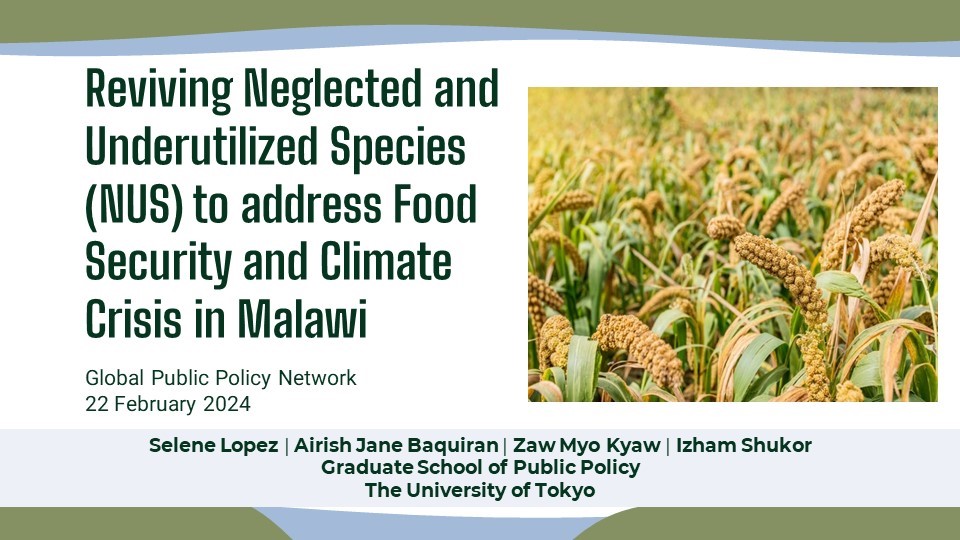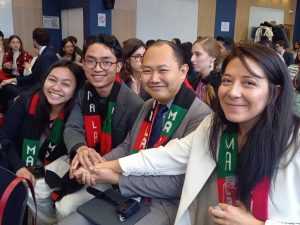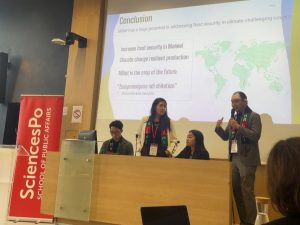REVIVING NEGLECTED AND UNDERUTILIZED SPECIES (NUS) TO ADDRESS FOOD SECURITY AND CLIMATE CRISIS IN MALAWI
By Muhamad Izham Abd Shukor, Zaw Myo Kyaw, Airish Jane Baquiran, Selene Lopez Ludena
Neglected and underutilized species (NUS) represent a significant yet overlooked opportunity in addressing poverty, hunger, and malnutrition, while concurrently enhancing the resilience of agricultural production systems to climate change. Unfortunately, these potential benefits have received scant attention from both climate change researchers and agricultural policymakers.
Despite the well-documented socio-economic advantages of crop diversification, evidence indicates that Malawian farmers are notably reluctant to embrace such practices. Bridging this gap necessitates a strategic focus on market creation, achieved through targeted public incentives and investments, coupled with comprehensive infrastructure development across the entire supply chain.
This public policy proposal advocates for the establishment of a robust one-stop center—a multi-disciplinary, holistic, and participatory initiative that involves diverse stakeholders and considers the entire value chain of NUS, with an initial emphasis on millet. Millets, classified as non-commodity crops, belong to a biodiverse group encompassing domesticated, semi-domesticated, or wild species, primarily cultivated within traditional systems often at subsistence levels.
The proposed approach aims to forge synergies, streamline efforts, and magnify the overall impact of the initiative. By promoting crop diversification, particularly the cultivation of millet, Malawi stands to significantly boost grain output, thereby addressing food security concerns. Notably, the inherent climate resistance of millet ensures a more stable water supply, mitigating the impact of prolonged droughts on agricultural productivity in the country.




